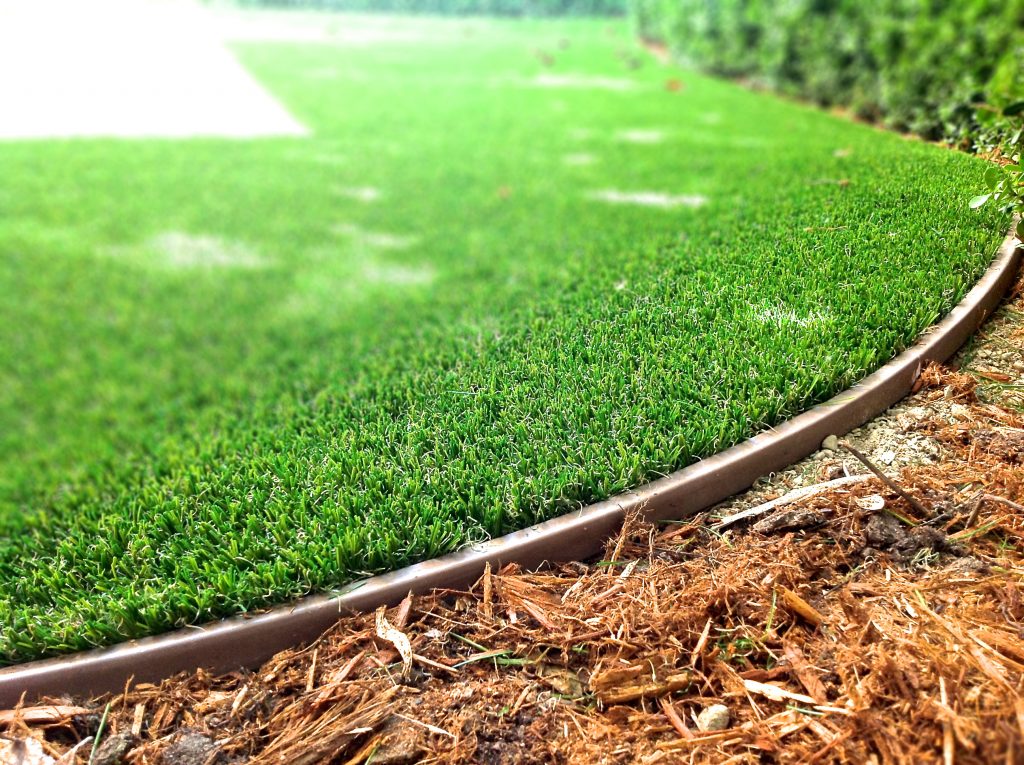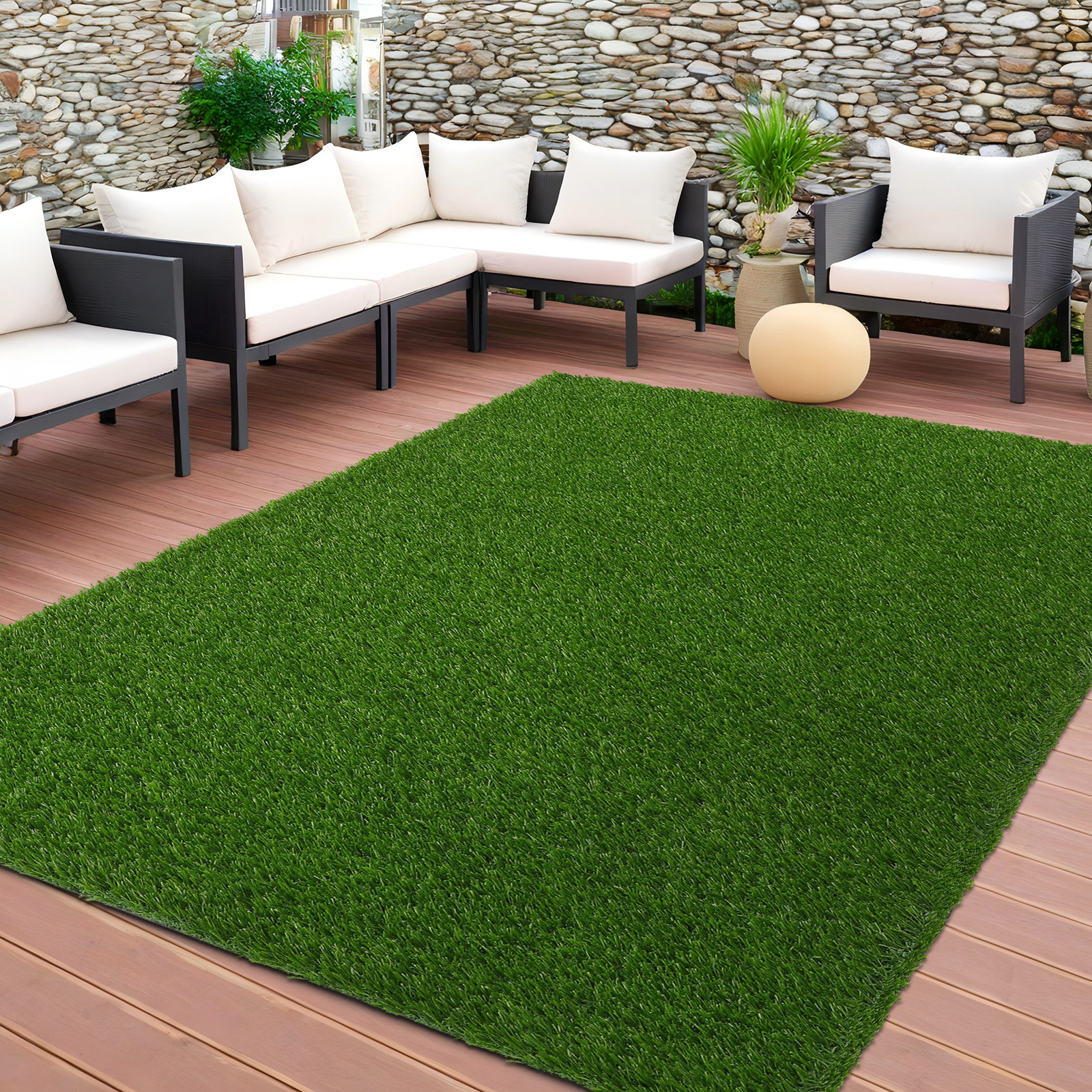Cost-Effective Turf Installation Phoenix AZ for a Hassle-Free Lawn Solution
Cost-Effective Turf Installation Phoenix AZ for a Hassle-Free Lawn Solution
Blog Article
Delve Into the Environmental Conveniences of Opting for Artificial Lawn Solutions
The fostering of synthetic grass services presents a compelling chance to address pushing environmental challenges. By substantially minimizing water usage and reducing the application of dangerous chemicals, these options not just promote lasting landscaping yet additionally secure local ecosystems. Additionally, the reduced carbon footprint linked with decreased upkeep activities contributes to a much more sustainable technique to land management. The effects of these advantages prolong past mere preservation initiatives, raising inquiries about their lasting influence on habitat preservation and general eco-friendly balance. Discovering these measurements reveals an intricate interplay worth taking into consideration.
Water Preservation Benefits
One of one of the most significant advantages of synthetic grass is its capability to preserve water. Traditional yard yards call for considerable irrigation, specifically in locations vulnerable to dry spell or water constraints. In comparison, synthetic grass does not require watering, dramatically lowering the overall need for water resources. This feature is specifically useful in dry areas where water scarcity is a pressing worry.
By eliminating the requirement for normal watering, synthetic grass contributes to sustainable landscape practices and aids mitigate the ecological influence of too much water intake. Moreover, the preservation of water encompasses the reduction of overflow, which can result in soil disintegration and river contamination.
In addition, the installation of synthetic grass permits municipalities and property owners to allot water resources extra effectively, focusing on crucial usages such as drinking water and farming. The change towards synthetic grass not only promotes responsible water use but also lines up with broader ecological objectives aimed at preserving natural resources.
As areas increasingly focus on sustainability, the water conservation benefits of man-made turf provide an engaging instance for its adoption in property and commercial landscape design tasks.
Decreased Chemical Usage
The transition to fabricated grass dramatically lowers the reliance on chemical therapies frequently used in all-natural yard maintenance. Typical grass monitoring normally entails the application of herbicides, plant foods, and chemicals to promote growth and control insects. These chemicals can present risks to human health, local wildlife, and the environment, adding to soil and water contamination.
In comparison, fabricated lawn eliminates the requirement for these damaging compounds. By decreasing the release of synthetic substances into the ecosystem, man-made grass promotes healthier dirt and water systems.
In addition, the lack of chemical drainage connected with man-made turf installments assists protect local rivers from pollution, supporting water life and preserving biodiversity. Artificial turf companies phoenix. As areas increasingly prioritize lasting methods, going with synthetic grass offers a sensible option that lines up with ecological preservation objectives. Through this shift, homeowner can take pleasure in rich eco-friendly rooms without jeopardizing ecological wellness, leading the means for a much more sustainable future
Reduced Carbon Impact

Moreover, the installation of synthetic grass can cause substantial water preservation. Natural grass require considerable amounts of water for watering, which not just contributes to the carbon footprint connected with water removal and treatment however likewise pressures neighborhood water sources. In comparison, synthetic grass needs minimal upkeep, needing no watering, thereby significantly minimizing water use and its connected energy prices.
In addition, the longevity of synthetic grass adds to its decreased carbon impact. With pop over to these guys a lifespan of approximately 15 years or even more, the demand for regular replacements is diminished, resulting in less waste and lower power consumption in production and throwing away conventional yard alternatives. Overall, synthetic grass offers a sustainable option for ecologically mindful landscape design.
Habitat Preservation
Habitat preservation is an essential factor to consider in the debate over landscape design choices, specifically when comparing synthetic grass to natural lawn. All-natural yard lawns typically call for substantial maintenance, including making use of fertilizers, herbicides, and pesticides, which can negatively affect local environments. These chemicals can seep into the dirt and waterways, hurting indigenous flora and animals and interfering with regional habitats.
On the other hand, synthetic lawn offers a chance to decrease the eco-friendly impact of landscape design. By selecting artificial turf, home owners can decrease the interruption of all-natural habitats related to typical yard care practices. Synthetic grass eliminates the demand for damaging chemicals, consequently shielding neighboring wildlife and maintaining the integrity of surrounding ecological communities. The installment of artificial lawn can lead to the conversion of previous yard locations into more biodiverse landscapes, such as pollinator yards or indigenous plant areas, which can support neighborhood wildlife.
Inevitably, the change to man-made grass not just conserves water and lowers maintenance initiatives but likewise cultivates a more harmonious relationship between human activities and the natural surroundings, promoting habitat conservation at the same time.
Long-Term Sustainability
Lasting sustainability is a crucial consider reviewing the advantages of fabricated lawn over conventional turf yards. Among the most considerable advantages of man-made grass is its longevity; it can last approximately 15-20 years with very little maintenance, whereas natural grass needs constant reseeding and substitute. This longevity reduces the need page for consistent sources, such as water, plant foods, and chemicals, which are necessary for keeping a healthy turf lawn.
In addition, synthetic grass contributes to a reduction in carbon emissions connected with yard care devices. Standard lawns usually call for gas-powered lawn mowers, leaners, and blowers, all of which add to air contamination. Phoenix turf companies. On the other hand, man-made grass gets rid of the need for such tools, promoting a cleaner environment
Furthermore, the manufacturing of man-made lawn progressively utilizes recycled products, improving its sustainability account. As manufacturers embrace environmentally friendly practices, the environmental impact of synthetic grass continues to decrease.

Final Thought
The adoption of synthetic grass solutions offers considerable environmental benefits, consisting of significant water preservation, minimized reliance on dangerous chemicals, and a lower carbon footprint. Moreover, man-made lawn help in maintaining natural environments by lessening land disturbance and promoting lasting sustainability through the use of long lasting products. Collectively, these factors highlight the capacity of synthetic grass to contribute favorably to environmental health and wellness and supply a sensible choice to traditional landscape design practices in a significantly resource-conscious world.
In comparison, synthetic turf does not need watering, substantially lowering the overall demand for water resources. By reducing the launch of synthetic compounds right into the community, man-made turf promotes healthier soil and water systems.
Furthermore, the installation of man-made grass can result in substantial water preservation. In comparison, fabricated lawn requires marginal maintenance, look at this website needing no watering, consequently dramatically lowering water use and its connected power prices.

Report this page